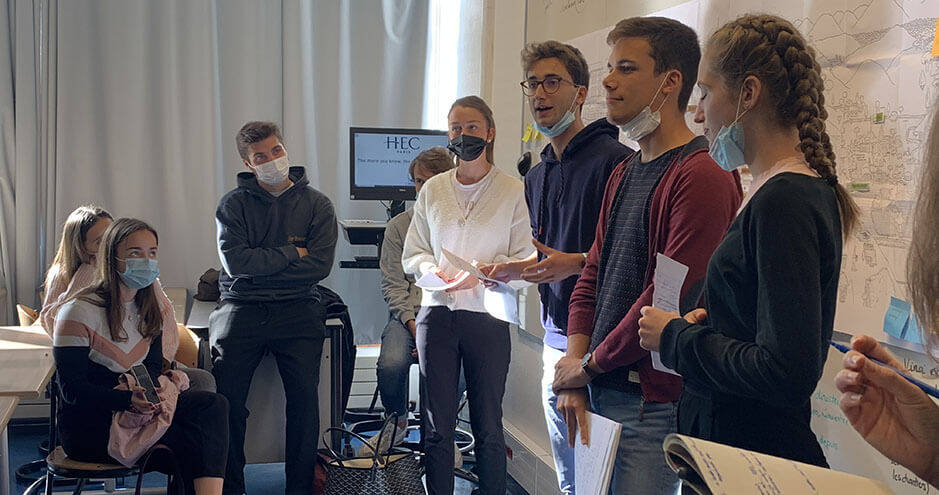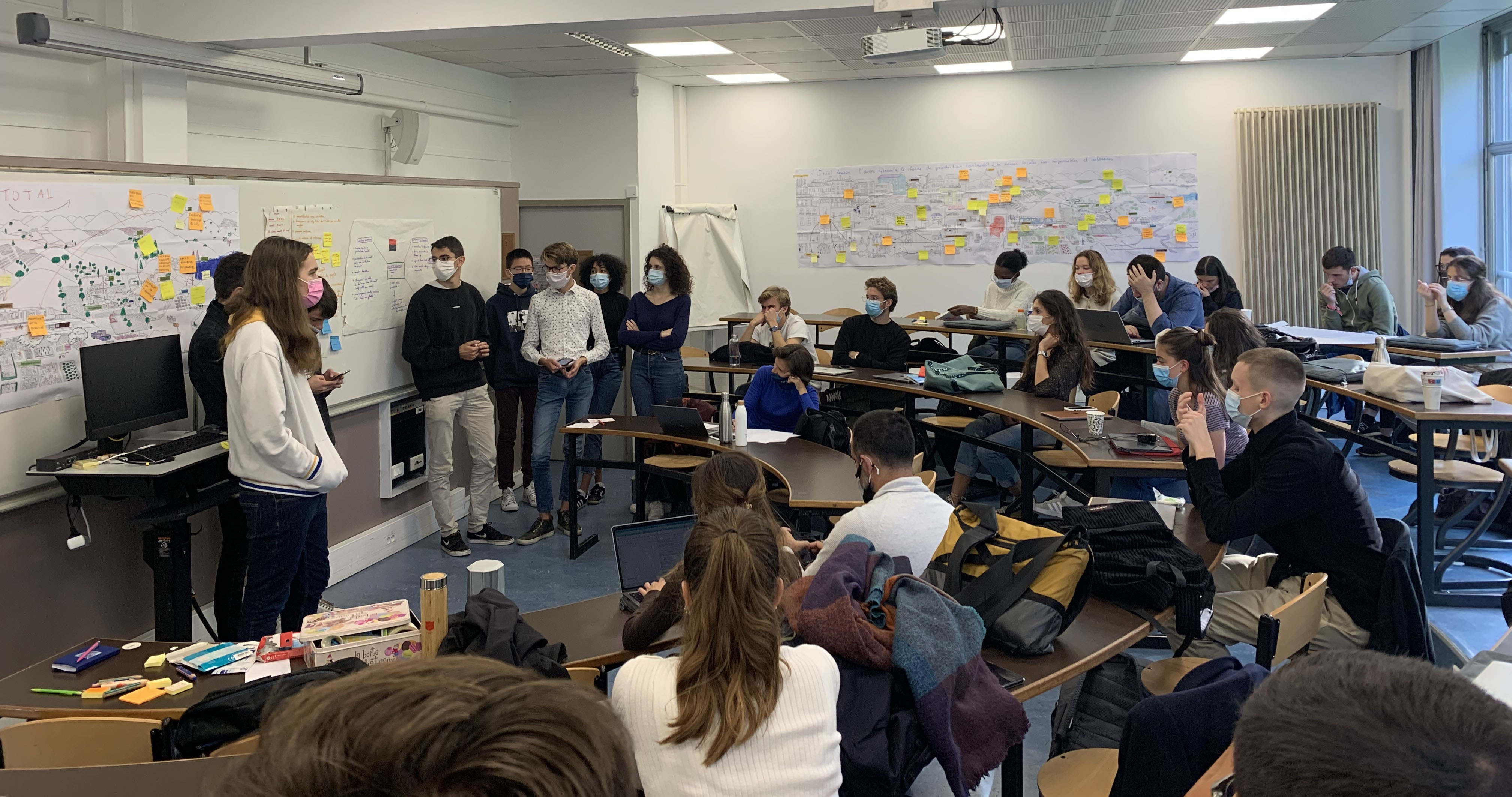A transformative First-Year Experience in the New Course: "The Planetary Boundaries"
For the first time this term, a new mandatory course, “The Planetary Boundaries,” is launching the academic journeys of first-year students in meaningful, enduring directions. Society & Organizations (S&O) Institute members designed and co-created with the students this course to provide a powerful deep dive into the business impacts of today’s most urgent social and environmental issues.

The “Planetary Boundaries” experience began before the official return to campus, with an immersive retreat this past August in Chamonix. There, in close physical proximity to the Massif of Mont Blanc and the Mer de Glace, students listened to the scientific analysis of glaciologists and climate experts on the destructive consequences of human activity. They also heard from local actors about how climate change is already impacting, and endangering, their livelihoods. Upon the return to campus, these 370 first-year students attended a series of MOOCs produced by AXA Climate on the science of biodiversity, climate change, depletion of natural resources, and the consequences of environnemental changes on human societies.
Experts invited to share their insights with students during the course included:
- Valérie Masson-Delmotte, climate scientist and co-chair of IPCC,
- Gilles Bœuf, biologist and chair the National Museum of Natural History,
- Philippe Bihouix, engineer, expert of ressources natural access,
- Cécile Renouard, co-Founder and Président of the Campus de la Transition.
Imagining ambitious impact scenarios
Bénédicte Faivre-Tavignot, executive director and member of the task force « The planetary bounderies » explains :
“What is most important about this 18-hour course is that it pushes students to develop their critical thinking skills and to dissect complex phenomena. Students are tasked with defending or challenging the CSR strategies of large companies and imagining ambitious impact scenarios. In this way, they develop a grasp of the pro-active roles that companies can take – particularly, for example, via innovative business and organizational models – to reduce negative externalities and even generate positive impacts.
They are also exposed to the limits of voluntary corporate engagement, the temptation for Greenwashing, and the need to engage multiple stakeholders from the public sphere and civil society. They learn how current challenges (climate change, the drop in biodiversity, the depletion of natural resources, and increasing inequality) call for accelerated systemic change and the mobilization of all stakeholders through new partnerships.”
President of HEC Economie Verte and “The Planetary Bounderies” task force member Antoine Rabain adds :
“As Bénédicte explained, one of the key educational objectives is to develop critical thinking skills in terms of a complex grasp of the integration of socio-environmental issues at the level of specific companies and business in general. Students develop their own business case studies and role-play the positions of CEOs, NGOs, and activist groups to debate the “pros” and “cons” of those cases, with all sides ultimately coming together to build a credible, ambitious joint vision. In this way, students are exposed to the inducements of certain stakeholders and, above all, the need to get away from the Manichean thinking that too often takes over in debates of major societal issues.
Transforming constraints into opportunities
To sum up in a few words what students can take away from this start to their 2021 academic year focused on the search for ecological solutions is: “Transforming constraints into opportunities!”
